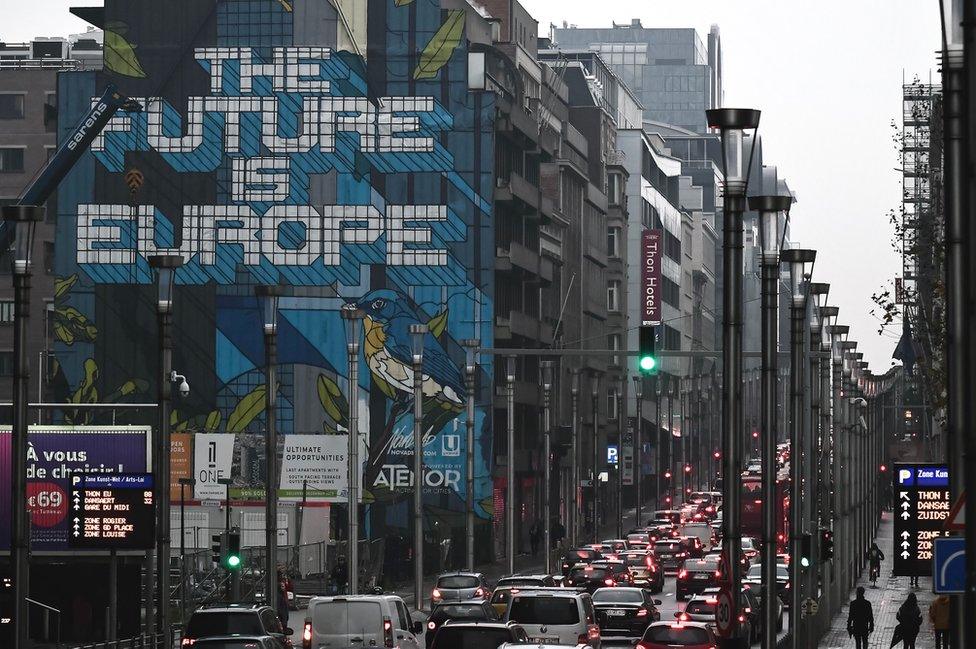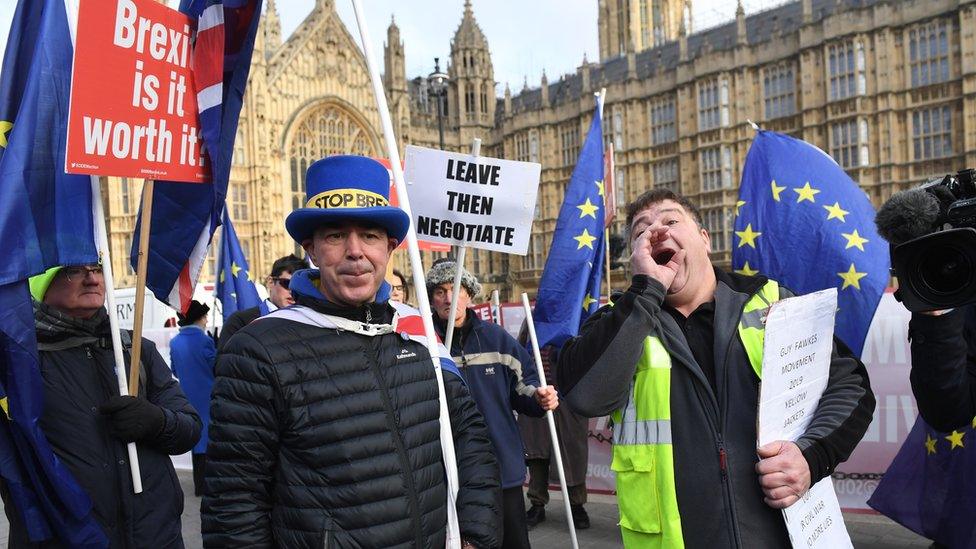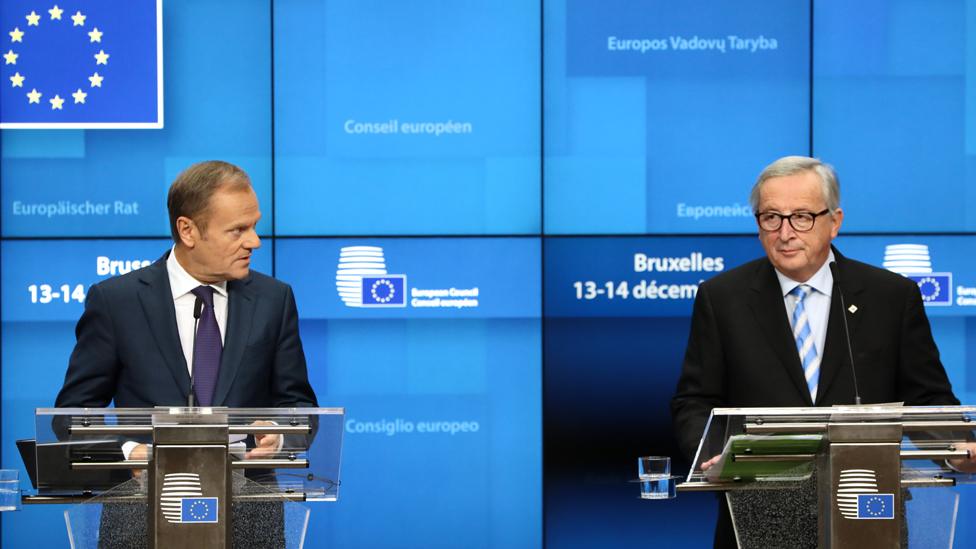Brexit: EU sets stage for UK withdrawal
- Published

Brussels European Quarter: Brexit is not disrupting the EU's day-to-day business
As the turmoil over Brexit continues at Westminster, the attitude in Brussels appears to be: "Keep calm and carry on."
That was an official slogan adopted by the British government in 1939, on the eve of war.
On Wednesday, European diplomats were glued to the drama as MPs clashed with the Speaker of the House of Commons, John Bercow.
There was a cautious welcome for the amendment shortening the time Theresa May's government will have to respond if, as expected, it loses next Tuesday's vote on the UK withdrawal deal.
"It reduces the possible period of uncertainty, or at least it might do," said a European official.
Veil of silence
Speculation about the possibility of no deal - or even an emergency summit - ebbs and flows with each passing hour.
No-one will admit to being on the receiving end of tentative calls from the UK about the possibility of postponing Brexit beyond 29 March, allowed under Article 50 of the EU treaty, external.
But everyone agrees it would be a logical thing for the UK to explore.

Tensions are running high in and around the House of Commons
If the EU is working on a letter of reassurance about the Irish border - to be deployed at the last minute - then it's being done in secret by the European Council and the European Commission, because officials from the member states don't know anything about it.
The Irish border backstop - aimed at preventing the return of a hard Irish border - is the thorniest issue addressed in the withdrawal deal.
But the EU has triggered the legal procedure for signing off that deal, whatever MPs in Westminster think of it.
Ambassadors from the 27 other member states (the EU27) approved the procedure in Brussels on Wednesday.
Read more on Brexit:
Formalities agreed
The EU27 will write letters agreeing that the deal should be signed. It will then be passed to the European Parliament for its consent.
The agreement will bear the signatures of European Council President Donald Tusk and European Commission President Jean-Claude Juncker.
Pretty obvious, yes, but there was a discussion about which big names would get to hold the pen.
This is designed to reinforce the message that the deal is done and to show that the EU is getting on with its side of the bargain - and to reassure MEPs that they'll get to have a say soon.

Last month, EU leaders agreed the withdrawal deal could not be renegotiated
Post-Brexit partnership
Separately, the EU is also designing the joint committee that will settle arguments with the UK over how to interpret the withdrawal agreement.
The European Commission will represent the EU in this body, which will also decide whether to extend the transition period or trigger the backstop or whether new European laws should apply in Northern Ireland if the backstop comes into force.
Individual countries will be able to raise disputes. Spain, Cyprus and Ireland will have special status because of their unique situations: sensitivities over Gibraltar, British sovereign bases and Northern Ireland.
It's an attempt to create a balance of power between European Commission bureaucrats and the national governments when it comes to overseeing relations with the UK.
Financial ties
There has also been progress on non-Brexit legislation, where the UK has influence until it leaves the EU, including a package of measures called the Investment Firms Review.
This includes rules on how some companies from outside the EU will be regulated when they sell financial services inside the EU, and will potentially apply to the City after the UK's exit.
British diplomats were dismayed when this was delayed by the French last year.
But it was given the nod this month and is now subject to a final round of negotiations.
"This is really important because it's going to be at the heart of what we do in future," said a British diplomat.
The EU machine is also processing the 14 pieces of legislation that make up its no-deal safety net, including bare-bones deals on aviation and road haulage.
But officials warn this is using up time and effort that could be spent on preparing for talks on the future relationship with the UK, pencilled in to start on 1 April.
And they still need time to watch the British political drama on TV.